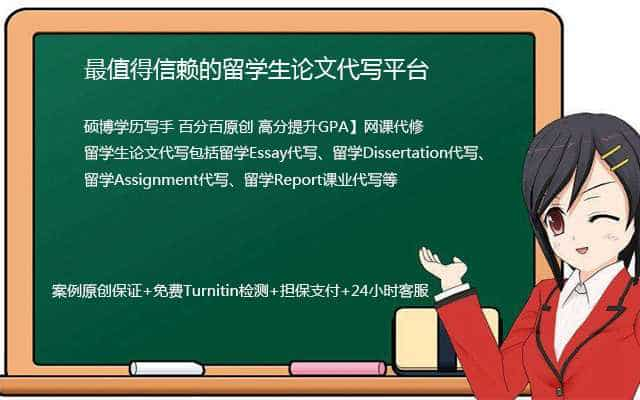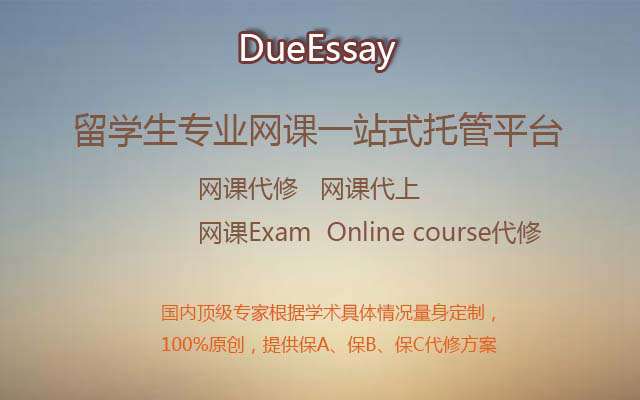
社会学论文代写_专业社会学作业代写
Educational psychology代写社会学sociology教育心理学论文essay paper毕业论文proposal. 笔者有不少在英国、美国、加拿大、澳洲留学的朋友,社会学专业出国
Impacts of Culture on Immigrants
Ⅰ. Introduction
Immigration is not a new topic, and it has a long history. It is known to all that the U.S. has a large immigration population so far. The statistics show that the immigration increase 7 percent to 1.49 million in 2016 compared with 1.38 million in 2015.(Zong Jie, Jeanne Batalova, and Jeffrey Hallock)Moreover, policies of immigration change a lot since President Trump took into office in 2016. “Anti-immigration” is the word used widely when it comes to the Trump administration’s position. What are the impacts of President Trump’s order on the immigrants in American now? Does the culture factors weight more than the political factor on the immigrants? In this paper, I am going to examine the weights of different factors on immigrants, and explore the factors, especially culture factors that have influences on the immigrants and the way the factors come into effect.
Ⅱ. Literature review
Culture plays an essential part in immigration and has enormous impacts on the immigrants. Author Mark Rubin discusses the gender, age, and culture impact ownership of immigration with the quantitative study of 1702 immigrants, and finds that “female immigrants were significantly less likely than male immigrants to claim ownership of the idea to immigrate” and “young women and non-Western women are most likely to be ‘trailing spouses’”(Rubin 2013: 501). Another author, Lorgia García Peña states that laws and acts on immigration have huge impacts on the immigration and immigrants, “shaped global constructions of race, immigration, and citizenship across the world”(Peña 2017: 76). Based on what the authors say above, in my study, I find that cultural factors have huge impacts on immigration and immigrants. For instance, it is not only the female trails her husbands, but the parents also trail their children, especially Chinese parents.
Ⅲ. Description of methodology
To conduct my study and get validation of what I insist, I have interviewed two participants who immigrate to American for different reasons. Due to their diverse cultural backgrounds and financial situations, their responses to the new surroundings and the political factor differ from each other. The two participants are typical, and representative and can support thesis well. The first one is a Chinese, Zhao qian. Mr zhao is at his sixties and came to American about five years ago because of his son’s success in the career in American, which make it possible to afford Zhao and his wife’s immigration from China. Thanks to one of my hometown friends, I can get in touch with Mr. Zhao and collect the information needed to support my paper. The second one is Sun li, a woman from Filipino who is at her thirties. Thanks to Mr. Zhao, I encounter Ms. Sun. Lucky enough, Ms. Sun accepts my interview and agrees to share her experience with me. Sun li is not her real name, and she doesn’t have a Chines name as well. To name her Sun is at her request and for the sake of convenience as well. Mr. Sun is good at domestic works and builds her reputation with her specialty literacy in ten years since she came to American. Now she serves several middle-class families every week, by which she can finance her family in Filipino now. It takes about four hours to complete all the work inclusive of make acquaintance with the two participants. To follow the academic ethics, the participants’ names are changed, and other information that may arise privacy infringements is dealt with carefully.
Ⅳ. Results

Reasons to come to American are not the same as the other. To Mr. Zhao, it is the “filial piety” that is emphasized again and again. From the point of Mr. Zhao, his son and daughter are good Children. And they studied hard and got a decent, well-paid job after they graduated from universities. It was the year Mr. Zhao retired that he and his wife, Ms. Zhao came to American. “I have retirement pension monthly and live in comfort in China. I am not willing to come at the very beginning. But, my son and daughter-in-law insist. We agreed at length.” From these words, it is obvious that Mr. Zhao it is his son that makes decisions instead of Mr. Zhao for the sake of “filial piety,” which is very important in Chinese culture. Here, ownership of immigration belongs to Mr. Zhao’s children which is not referred to in Rubin’s discussion. To Mr. Zhao and his wife, they are here to enjoy life.
Moreover, it implies the cultural factor has a significant impact on immigration. However, it is a whole different story to Ms. Sun. It is the economic factor that drives Ms. Sun to come to American. To make money is the primary goal on the first day she came to American. “It is my responsibility to share the burden with my parents, to support my young brother and sisters.” Ms. Sun shows her love for her family, and that’s why she took the domestic work as her career about ten years ago. Thanks to the training provided by her motherland and her starving, she gains all the credentials needed and obtain the first job overseas at her twenties. In about years, she suffers a lot, and her hardworking pays out. Her family now can receive the checks regularly.
Language barriers Mr. Zhao’s cultural integration. Different from the young immigrants from China with a good mastery in English, Mr. Zhao can speak only a little English that enables him to shop in the supermarket with the help of good-natured cashiers. “I don’t like to go outside unless it is necessary. And I am not willing to show my shortness in language. However, my grandson always encourages me to speak bravely.” Due to the language barrier, Mr. Zhao limits his sphere of activity, and he speaks a lot when his son and grandson at home in Chinese. In his heart, his grandson weighs a lot. Fortunately, he makes a new friend with an old man immigrating from China recently, which brings a lot of pleasure because of their talking about news about China. “I don’t know the news in the local community and policies on immigrants, all the information I get about American comes from my son.”
Confusion of culture identity haunts. It is tough for Mr. Zhao to know about American well due to his English literacy. Although good at English and knowing American well, Ms. Sun still misses her mother and her brother and sisters, and her hometown a lot. Nowadays, Ms. Sun can keep in touch with her family through Skype regularly. But it is about three years since she went home, her own home in Filipino because of the transport expense of going there and back. “I like Maya very much, and once hope that one day I can find my love with her luck. But I realize it is unreal in reality.” What Ms. Sun refers to is the drama, Be Careful With My Heart. And Maya, a domestic worker in the drama, married to the single, wealthy doctor at last. Usually, she confuses whether she has been an American in the heart after spending about ten years in American and wonders the influence of immigration on her life.
Ⅴ. Discussion
The research impacts research questions. To put forward research questions well, one should understand the research well. Focusing on the impacts of culture on immigration and immigrants, one should realize at least two different cultures. Only in this way, the comparisons and contrasts can work well. Take Chinese culture for example. In Chinese culture, the man who treats his parents well gets praised by society. Moreover, the Chinese stresses the thought that grandfather prefers boys, and of getting together with family. Based on this, questions about Mr. Zhao are not hard to put forward. Besides, one can come up new questions during the interview to get as much as information related.
Reflecting on all the respondences, it is not hard to figure out that the results support the research ideas well. To explore the reasons or pulls of immigration, the examples of Mr. Zhao and Ms. Sun give at least two critical goals: cultural factor and economic factor; To illustrate the barriers of cultural integration, the instance of Mr. Zhao is given. His English is terrible, which hinders his integration and acknowledgment of the local community and new culture and leave him insistence to Chinese culture. At the same time, Ms. Sun spends about ten years working in American encounters the problem of cultural identity.
As an international student from China, it is easy to find consultants from China because of knowing well of China, and research questions can be put forward quickly. On the other hand, it can influence the objective principle and neutrality due to the cultural background. Thus, it may play a role in interpreting the results carefully.
Ⅵ. Conclusion
Culture has enormous impacts on immigration and immigrants. It is worth to notice that cultural background plays a vital role in migration. To Chinese parents, their children working abroad can be the critical factor in deciding on immigration instead of their parents because of Chinese culture. Language barriers immigrants’ cultural integration into a new culture. And culture identity puzzles many immigrants. For further research, more questions should be answered. It is worthy to explore the impacts of Chinese culture on the new generation, such as Mr. Zhao’s grandson.






